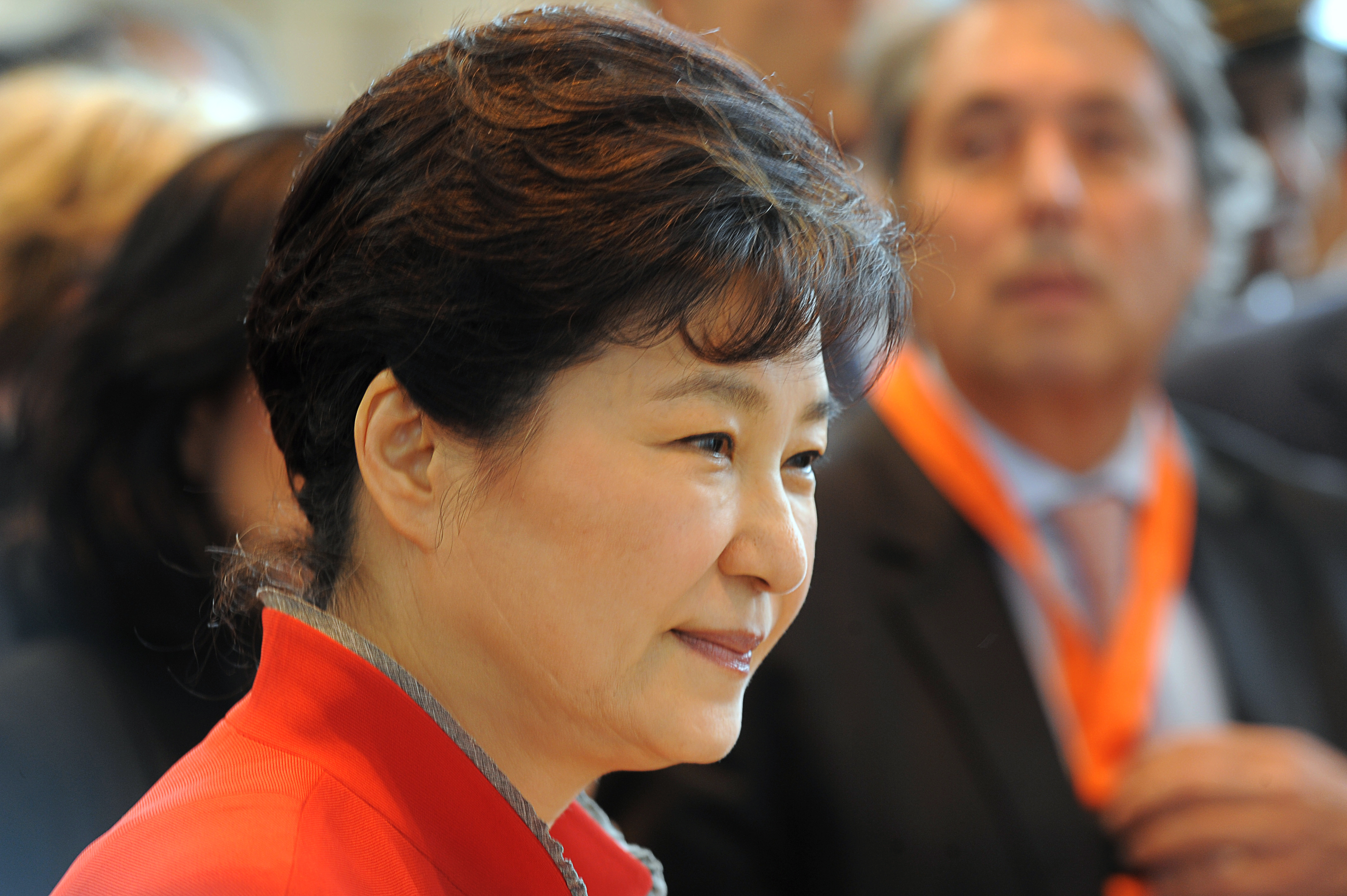
SEOUL, South Korea (AFP) — South Korean President Park Geun-Hye on Monday urged North Korea to abandon its nuclear weapon programme and defended the deployment of a US anti-missile system in the face of repeated “provocations” by Pyongyang.
Tensions have been running high on the divided Korean peninsula ever since the North carried out its fourth nuclear test in January, and are expected to spike again when the South launches an annual joint military exercise with the United States later this month.
“I urge the North Korean government to immediately stop all provocations and threats targeting South Korea as well as the development of weapons of mass destruction,” Park said.
Her comments came as both Koreas celebrated the anniversary of the liberation of the peninsula from Japanese colonial rule in 1945.
Stressing that “true liberation” would involve reunification of the divided Korean peninsula, Park said that could only happen by removing the fear of nuclear weapons, missiles and war.
She also warned Pyongyang that all attempts to provoke and intimidate the South would be counter-productive.
“The more efforts (the North) makes, the deeper the country’s isolation in the international community will be and the bigger its economic problems will be,” she said in a televised Liberation Day speech.
The North’s nuclear test in January resulted in a substantial strengthening of UN sanctions, but a defiant Pyongyang doubled down with a series of ballistic missile tests also banned by UN resolutions.
South Korea responded last month by announcing the deployment of the US Terminal High Altitude Area Defense (THAAD) system to counter the North’s missile threat.
The move was not only condemned by Pyongyang but also Beijing which views the deployment as a US move against its own national security interests and a threat to regional stability.
“The deployment of THAAD is an act of self defense,” Park stressed in her speech, adding that her priority as president was to “protect the lives of our people from the reckless provocations of the North.”
THAAD has also been the subject of domestic protests, particularly by those living in the rural South Korean county of Seongju where the first battery will be installed.
Residents say the system’s powerful radar poses health and environmental hazards and argue that its presence will make them a key military target.
Some opposition lawmakers have actively sided with the residents and called for the deployment to be scrapped — a stance criticised by Park.
“I believe that such a matter … should not be the subject of a political fight,” she said.
“If there is any other way to protect our people and the country, one should propose an alternative,” she added.
© 1994-2016 Agence France-Presse







